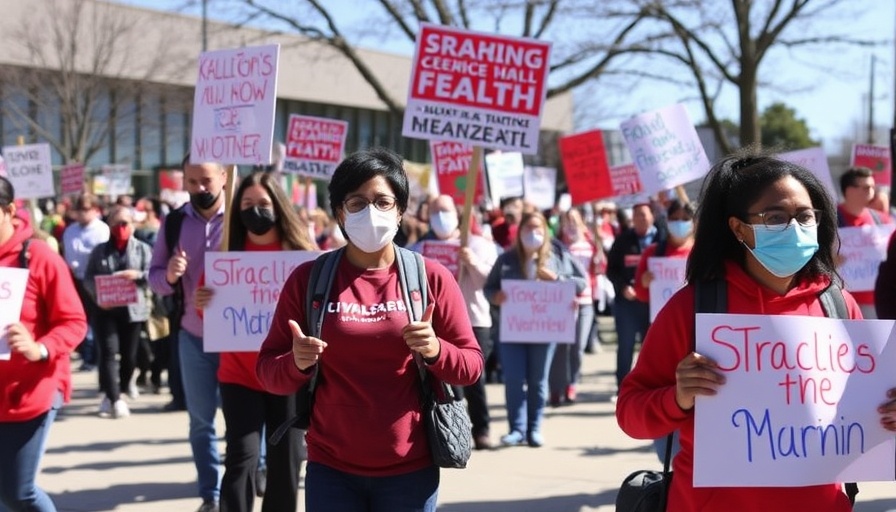
Kaiser Mental Health Workers Reaching a Major Turning Point
After an extensive and historic 196-day strike, Kaiser Permanente mental health workers in San Diego are on the brink of returning to work. The contract agreed upon between the National Union of Healthcare Workers (NUHW) and Kaiser is a stepping stone not only for these professionals but for advocacy surrounding mental health care equity.
The Necessity of Fair Work Conditions
The strike, beginning in October, stemmed from demands for better pay and improved conditions that allow mental health professionals to dedicate sufficient time to patient care. Sal Rosselli, former president of the NUHW, emphasized the achievement of progressing towards equity, although more remains to be done. Mental health professionals, often holding advanced degrees such as PhDs, reported earning significantly less than their counterparts in physical and occupational therapy, highlighting an urgent issue in how health workers are compensated.
Legislation and Future Implications
While the ratification of this tentatively agreed contract could clear the way for employees to return as soon as this week, the broader implications stretch beyond the immediate workplace. The momentum from the strike has ignited a push for two crucial bills in California’s legislature aimed at improving mental health care accessibility.
One bill, AB 1429, seeks to mandate reimbursements for patients who incurred out-of-pocket costs for mental health care outside of Kaiser’s network due to non-compliance with required care protocols. SB 747 aims to shed light on pay disparities between mental health workers and their medical field peers, bringing necessary transparency to how behavioral health workers are compensated.
The Emotional Toll of the Struggle
The toll of this prolonged conflict underscores the pressing need for cohesion and mental health advocacy in the workplace. Strikes are not just battles over pay; they resonate deeply, sending ripples through communities reliant on accessible mental health services. For many, having their voices raised during this strike imbues a sense of agency, compelling them to challenge a system that often overlooks mental health needs.
Why Advocacy Matters Now More Than Ever
This situation shines a light on a broader societal concern: the need for equal treatment and fair compensation across all healthcare sectors. Kaiser’s opposition to these legislative bills points to continued challenges ahead in the journey toward mental health equity. As mental health workers prepare to return, their experiences can reflect a pivotal narrative on workplace rights, equality, and improving mental health services overall.
How This Affects You: A Call to Action
For workers across various sectors, observing these events is critical. They reveal how essential it is to advocate for fair labor practices and the prioritization of mental health in all workplaces. It’s an invitation for individuals to become active participants in advocating for their own rights and well-being while shedding light on mental health awareness.
Stay engaged, informed, and ready to voice your inquiries in workplaces. Whether you’re a mental health professional or simply someone concerned about workplace rights, your participation can contribute to a significant change in how society views and treats mental wellness.
 Add Row
Add Row  Add
Add 




 Add Row
Add Row  Add
Add 

Write A Comment